Yesterday was just another ordinary day. A day of my life, bracketed in the morning and the evening with reminders to open my eyes and to appreciate what is right here. It’s amazing, now that I see these nudges, how many of them there are. I wonder how myopic I must have been, all those years with my eyes focused on that next thing, to have missed so many messages from the universe. Well, were the messages from out there or were they from in here, the most intimate place there is? From my spirit, my soul, my very life?
Early in the morning I set off to take the subway (the T) to a meeting. I was walking down the familiar street to the T stop, a walk I’ve made hundreds of times in the nine years we’ve lived in our house, my nose buried in my iPhone. I literally stopped dead in my tracks when I stepped onto a carpet of pink petals.
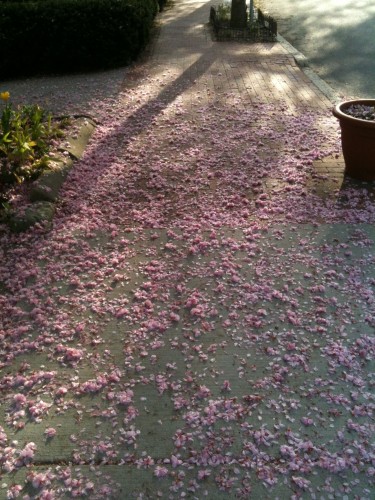 You can see I had made my way onto the edge of this gorgeous drift of pink petal snow before I woke up, literally. I stood there and took pictures, breathing in the faint smell of the blossoms, their perfume spring incarnate. (not quite Princeton’s magnolias, but close). I looked up and saw the cerulean blue sky through the pink branches. And I was ashamed, truly, that I would have missed this.
You can see I had made my way onto the edge of this gorgeous drift of pink petal snow before I woke up, literally. I stood there and took pictures, breathing in the faint smell of the blossoms, their perfume spring incarnate. (not quite Princeton’s magnolias, but close). I looked up and saw the cerulean blue sky through the pink branches. And I was ashamed, truly, that I would have missed this.
I tucked Whit into bed tonight hugging Jimmy, the class teddy bear who spent the weekend with us. Every weekend Jimmy visits a different classmate in Whit’s Beginner class, and this was ours. Grace and I were just starting to read about Hermione and Harry’s vociferous defense of Sirius Black when I heard a strange sound from upstairs. I paused. “What’s that, Gracie?” We both listened. Nothing. I started reading again. The noise started back up. It was Whit, weeping
After a few moments where I tried to figure out if he was posing – yet another new trick to postpone bed? – she and I went upstairs to check on Whit. He was lying in bed, face awash in tears, clutching Jimmy. I sat on the edge of his bed and asked him what was wrong. His words were punctuated with sobs as he choked out how upset he was to say goodbye to Jimmy tomorrow. “Oh, Whitty,” I said. My heart felt like it leaned over in my chest, angling towards him. Deep in my chest I recognized his pain, the brutal symmetry of love and loss, so much on my mind lately. I told him I know how hard it was to say goodbye to things we love.
A few minutes later, Grace and I were reading again when I heard Whit ask quietly, “Will you snuggle me?” I looked up to see him standing forlornly on the stairs, Jimmy held against his chest. “Of course,” I answered. After I kissed Grace goodnight, I went upstairs and lay down on Whit’s bottom bunk.. I curled behind him, singing along in a whisper to his lullabye CD’s version of You Are My Sunshine, listening to his sobs grow slower and quieter. After days of being all bravado and bluster, he had dissolved back into my emotional son, my little boy with big feelings, and I thought about how often he will shuttle between these two poles over the next few years.
“Are you ready for me to go?” I murmured against his neck. “No,” he said quickly, quietly, and so I lay with him for another song. And here I am now, at my desk, eager to get going on a new essay idea I have. But first I have to put pictures of Jimmy’s visit into the class album, with narration of his weekend activities. I’m not annoyed that I have to do that before my “real” writing. This is also writing, in its own way, the writing of my ordinary life.
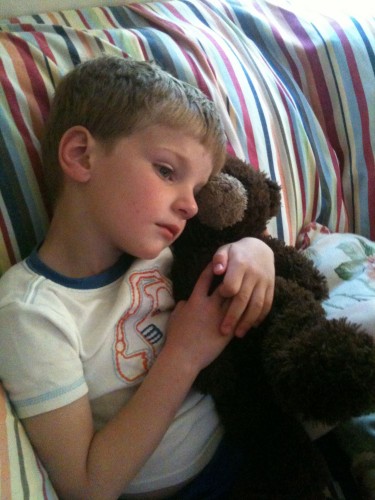
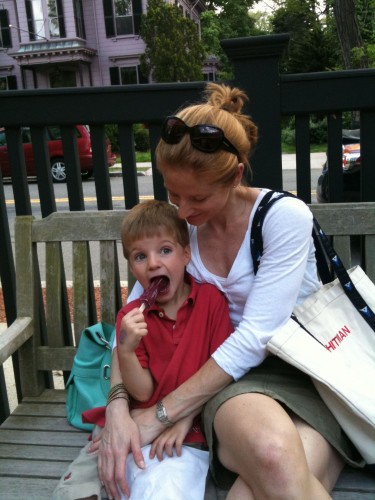
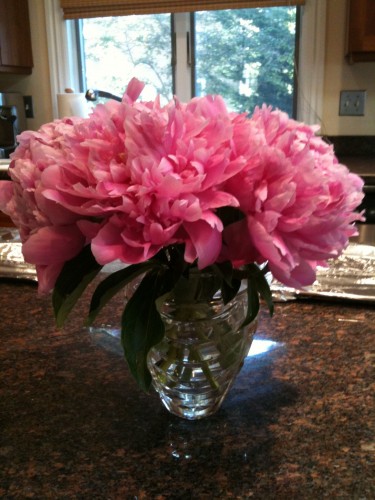
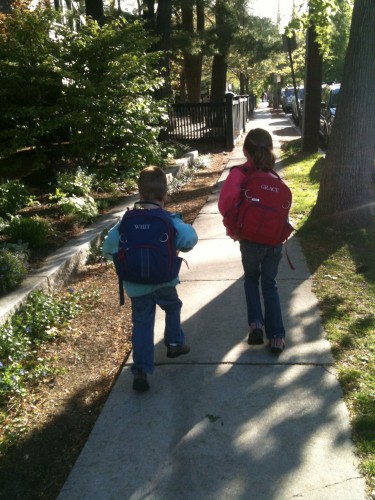
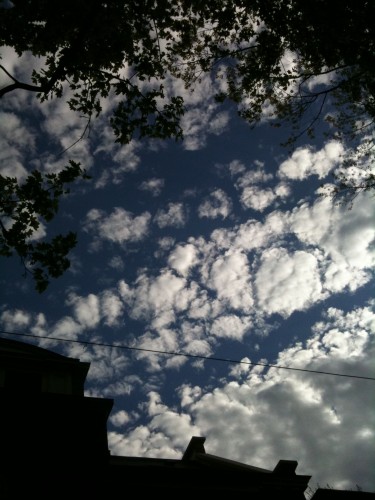

 You can see I had made my way onto the edge of this gorgeous drift of pink petal snow before I woke up, literally. I stood there and took pictures, breathing in the faint smell of the blossoms, their perfume spring incarnate. (not quite
You can see I had made my way onto the edge of this gorgeous drift of pink petal snow before I woke up, literally. I stood there and took pictures, breathing in the faint smell of the blossoms, their perfume spring incarnate. (not quite 